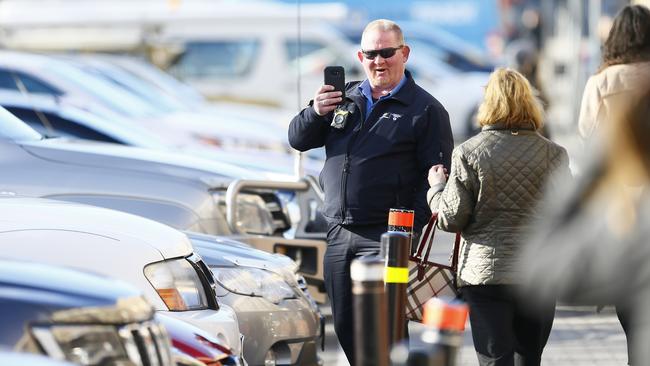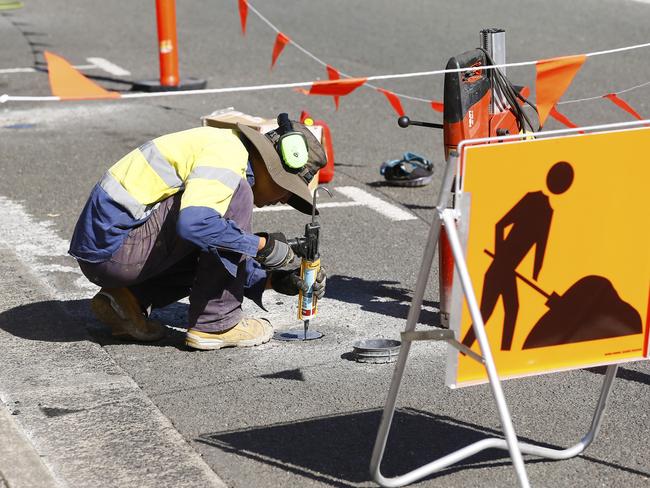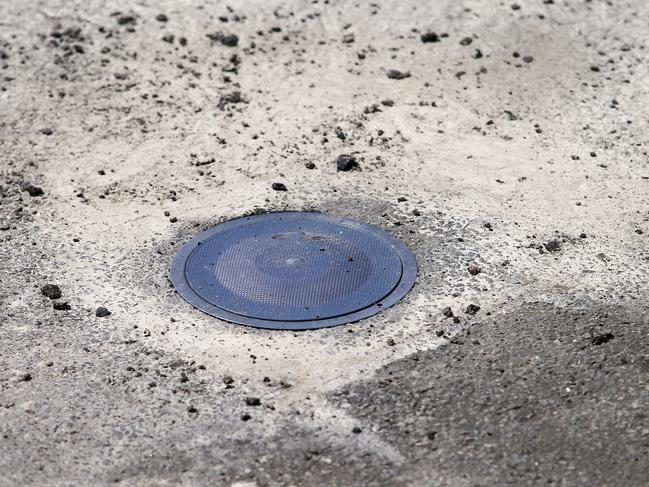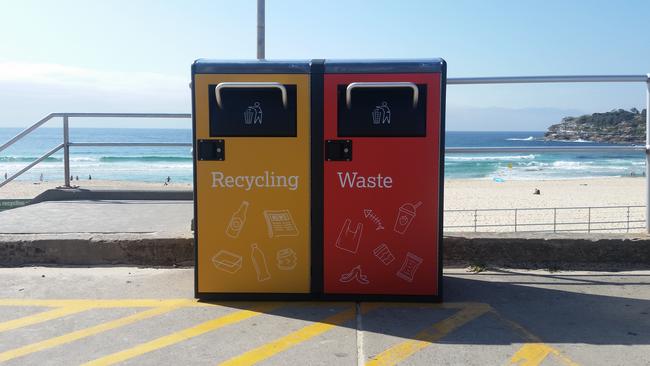Smart bins and parking meters will be part of Hobart’s digital future
HOBART drivers fed up carrying coins for street parking are set for a reprieve with the rollout of smart meter parking to begin next week.

Politics
Don't miss out on the headlines from Politics. Followed categories will be added to My News.
HOBART drivers fed up carrying coins for street parking are set for a reprieve with the rollout of smart meter parking to begin next week.
About 30 smart parking meters will be activated next week in the Hobart CBD as the Hobart City Council pushes ahead with its smart city strategy, which is set to revolutionise how drivers interact with their parking spaces.
The new system features in-ground parking sensors that can detect the moment a vehicle arrives.
MORE: NEW PARKING SENSORS TO REAP REWARDS
MORE: GET READY FOR A SURGE IN PARKING TICKETS
The bad news for drivers is the sensor will immediately notify parking inspectors electronically when motorists exceed their time limits.
The good news is people will be able to use credit cards to pay for parking and — once the parking app goes live — you’ll be able to extend your parking times from your smartphone.
About 1800 in-ground parking sensors will be installed across the city to pair with the new meters as part of its $3.9 million parking revamp.
MORE: WILL PARKING PLAN BE COMPLICATED BY STATE ROAD TAKEOVER?

The $3.9 million revamp will eventutally include city carparks and major streets including Elizabeth, Liverpool, Davey, Harrington, Collins and Bathurst streets.
Hobart City Council director of city innovation and technology director Peter Carr said the council was taking a “let’s walk, before we run” approach to the six-week rollout of the smart meter project.
“The sensors have been in the ground for a number of months,” he said.

“We want to get everyone comfortable with it before we do much else.
“In terms of the parking app, that is a separate part of the system, which won’t go live immediately.”
Another exciting intiative the council is working is smart street bins, and forms part of its application for Federal Government funding under the Smart Cities and Suburbs Grant.
Mr Carr said Sandy Bay had been selected for the trial, with about 10-20 bins to be fitted with special sensors.
The sensors will detect: when the bins are full; if the bin omits offensive smells; and if a cigarette butt has been thrown in and started a fire.

Mr Carr said it was all about staying on top of waste, in a cost-effective manner, as the city continues to grow.
“We are looking at whether it will provide us with better information to provide a cleaner city,” he said.
The sensors will work on a low-power and long-range network called LoRaWAN, which can then be used for other smart city initiatives in the future.
“We can look at real-time water quality at beaches, air or noise issues in residential areas — the possibilities are endless,” he said.
The Smart City Strategy is open for consultation until the end of the year.
For more information, visit www.hobartcity.com.au .


